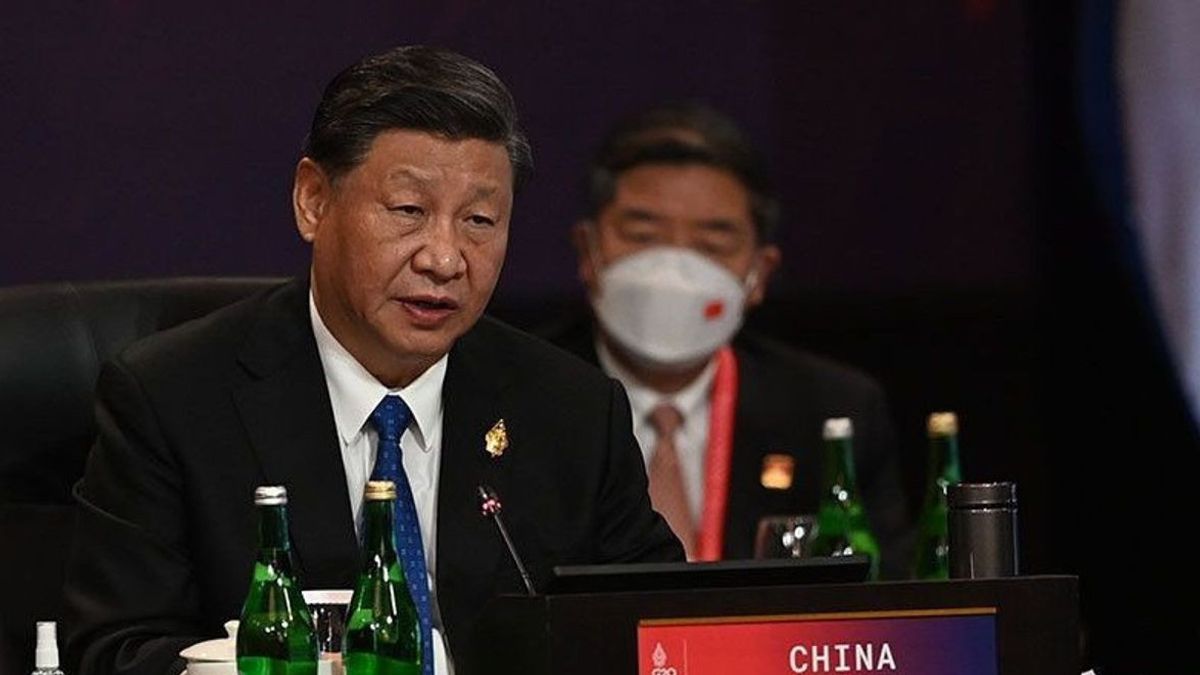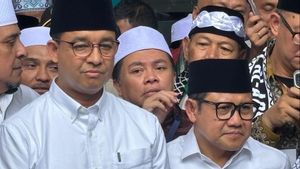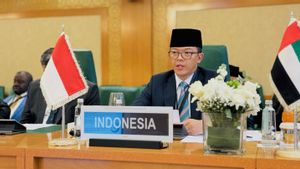JAKARTA - Chinese President Xi Jinping discussed economic problems, Taiwan and the disposal of Fukushima Nuclear Power Plant (PLTN) waste, when meeting with Japanese Prime Minister Fumio Kishida.
"President Xi Jinping stressed that key principles such as Taiwan's history and issues are very important for the political foundation of China-Japan relations," the Chinese Foreign Ministry said in a written statement reported by ANTARA, Saturday, November 18.
Chinese President Xi Jinping met with Japanese Prime Minister Fumio Kishida on Thursday (16/11) local time in San Francisco, United States on the sidelines of the Asia Pacific Economic Cooperation High Level Conference (KTT APEC).
"Japan must respect its commitments and ensure that the foundation of China-Japan relations is not damaged or shaken, because the economic, industrial and supply interests of the two countries are closely interrelated, then implementing a'small page, high fence' strategy, limiting economic movement, or disrupting supply chains will not be useful to anyone," he continued.
President Xi often conveyed the strategy of "small pages, high fences" which refers to the act of protecting certain strategic assets but not losing other benefits from an economic partner of a country.
China, according to the statement, is carrying out high-quality and open development so as to provide opportunities for Japan and other countries in the world.
This means that both China and Japan are expected to strengthen cooperation and contribute to each other's success, uphold the free trade system and continue Asian values built on the basis of peace, cooperation, inclusiveness and together face global challenges.
"President Xi Jinping also stressed that the expulsion of Fukushima nuclearly contaminated water into the sea could affect the health of all mankind, the global marine environment, and the common interest of the international community. Japan must take deep into account concerns from within and outside Japan and address this issue in a responsible and constructive manner", the statement said.
SEE ALSO:
Furthermore, at the meeting President Xi Jinping emphasized that in 2023 marks the 45th anniversary of the Chinese-Japan Peace and Friendship Agreement. Over the past 45 years, guided by four political documents including the agreement, the China-Japan relationship has passed the twists and turns of relations while maintaining the momentum of the relationship and providing benefits to the two nations.
"In this world full of change and instability, where there are many risks and challenges, coexisting peacefully, friendly and mutually beneficial between China and Japan is the fundamental interest of the two countries," Xi said.
China-Japan relations are currently said to be in an important period. Both parties must follow the trend of the times, stay in the right direction, follow the spirit of "taking lessons from history and opening up a new future", normalizing diplomatic relations, assessing the development of each country objectively and rationally, and managing dissent constructively.
President Xi hopes China and Japan become "mitras, not threats" that translate into real policies and actions.
Meanwhile, PM Fumio Kishida stated on an important occasion in the 45th anniversary of the Peace and Friendship Agreement between Japan and China because it is supported by the people of the two countries who have fond memories of the efforts made by the previous generation.
In the statement, Japan hopes to improve high-level communication and dialogue with China, improve positive things in bilateral relations, and ensure peaceful coexistence.
"Japan has no intention of keeping itself away from the Chinese economy or breaking the supply chain, and hopes to expand inter-society and cultural exchanges and strengthen cooperation in various fields such as the digital economy, environmentally friendly, fiscal and financial development, as well as health and care for the elderly," said PM Kishida.
Japan also remains committed to peaceful development and has not changed its position at all in the Taiwan issue, in accordance with Japan-China's Joint Statement.
Both sides are also said to have welcomed the newly formed export control dialogue mechanism. They agreed to maintain dialogue and communication at all levels, hold new "Economic High-Level Dialogue" and "High-Level Consultation Mechanism on People-to-People and Cultural Exchanges" and jointly address global challenges such as climate change.
"Both parties agreed to work constructively to find the right solution to nuclear waste disposal through consultation and negotiations," he added.
The English, Chinese, Japanese, Arabic, and French versions are automatically generated by the AI. So there may still be inaccuracies in translating, please always see Indonesian as our main language. (system supported by DigitalSiber.id)


















